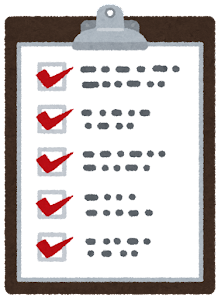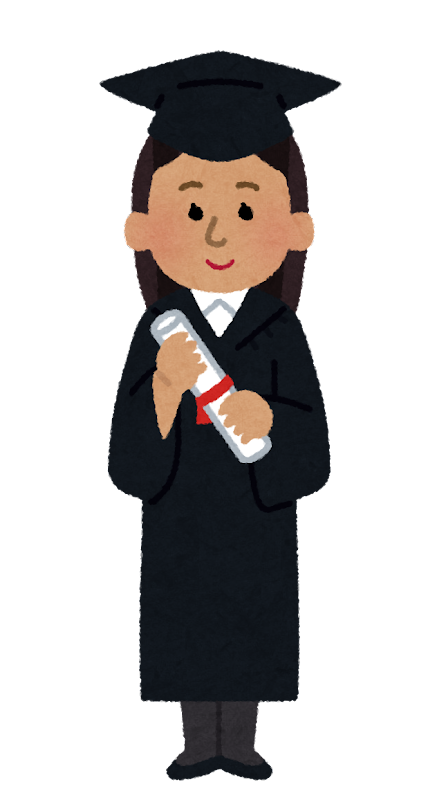On this page you will find answers to frequently asked questions sorted by individual topics. Also take a look at our orientation documents, which we publish as part of our StEP; these mainly deal with questions about arriving at university and in Saarbrücken. If you can’t find an answer, you can also visit our Discord, write an email or come in person (building E1.3, room 109).
The questions are roughly categorised, but the easiest way is probably to search using your browser’s integrated search function (Ctrl/⌘ + F).
Overview:
- Before starting your studies
- Concerning your studies
- Which lectures do I need to/should I attend?
- Which lectures are offered?
- Where do I need to register for lectures?
- Where do I need to register for exams?
- Which courses do I have to or am I allowed to take in the minor subject?
- When do I have to decide on a minor subject?
- I am having problems making progress in my studies or am threatened with losing my right to examination. What should I do?
- At university
- How do I get access the workrooms and computers in the computer science and maths buildings?
- How do I get internet access at the university?
- I need to print/scan/copy something!
- How do I find a student job or other work?
- How to access free software licences? What about student discounts?
- Who can I contact if I have a problem?
- End of studies
Before starting your studies
How can I study computer science at Saarland University?
Saarland University offers a whole range of computer science and computer science-related degree programmes. You can find a list with further information on the Saarland Informatics Campus (SIC) page.
The German Bachelor’s degree programmes (with the exception of the teaching degree) are open-admission programmes, i.e. you can simply enroll with a general higher education entrance qualification (i.e. normally with a German Abitur) before the enrollment deadline.
For the English Bachelor’s programmes and the Master’s programmes, you must apply several months before the start of the programme due to limited places. You can find the criteria and the application procedure on the individual programme pages of the SIC.
Please note that we, as the students’ council, are not involved in the application process, i.e. we cannot give any information about the status of an application. In all these cases, please contact the e-mail addresses given on the application pages.
I am enrolled. What can I do before the first semester?

The university provides an overview things you can or should do before the start of your studies. Make sure you have access to your student inbox, as this is where all important emails about your studies will be sent from now on.
For all new students at the UdS, we organise an introductory event lasting several days called StEP, where we tell you everything about your new university, its institutes and your studies. The StEP usually takes place the week before the start of lectures.
If you are enrolled in a Bachelor’s programme, we strongly recommend that you attend the mathematics pre-course. This takes place 6 weeks before the start of the winter semester. Here you can refresh your knowledge for the beginning of your studies. You can also get to know your fellow students.
The content of the StEP and the preliminary mathematics course does not overlap. We strongly recommend that you take part in both courses.
Unfortunately, there is no preliminary mathematics course in the summer semester. In this case, however, you can attend the preliminary mathematics course after one semester (i.e. before the next winter semester).
For international students, the Welcome Center offers a Welcome Week. As a rule, this does not overlap with the StEP either, so you can take part in both events.
Concerning your studies
Which lectures do I need to/should I attend?
You can find out which lectures you have to attend in your study regulations. You can find these for most computer science degree programmes on the pages of the MINT examination office, for bioinformatics at the Centre for Bioinformatics, and for the teaching programme at the Central Examination Office for Teaching Degree Programmes.
With the exception of the teaching degree, you can find the module list in section 5 of your study regulations. For Bachelor’s programmes in the first semesters, you will mainly attend so-called basic lectures, such as programming or mathematics for computer scientists, which provide you with basic knowledge. Later in the Bachelor’s programmes and to start with in the Master’s programmes, you will attend core lectures or advanced lectures, where you can choose from a large pool of different lectures. The lectures or modules are divided into different module areas. In mandatory areas, you have to listen to (and of course pass) all modules in this area. In mandatory elective areas, you can choose from several modules.
On the last pages of the study regulations you will always find a sample study plan that you can use as a guide, but it is only an example. Especially if you start in the summer or have failed a lecture, you will quickly deviate from this plan.
Which lectures are offered?
You can find the list of lectures offered in the respective semester in the central course catalogue of the LSF (language switcher in top blue bar). Click through the directory tree until you find your degree programme. Here you will find all lectures of the semester grouped according to the categories of your study regulations. If you click on a course, you will see more information and usually also find a link to the course’s website.
The list of lectures offered changes every semester. The basic lectures change every semester, e.g. Prog1 and MfCS1 are always offered in the winter semester and Prog2 and MfCS2 in the summer semester. Core lectures can be offered every year, but also only every 2 years. Advanced lectures and seminars can be offered at any frequency or only once.
Language courses can be found at the Language Centre (anything, except German), the MPI-IMPRS (English and German) or the ISZ (German). Courses for so-called key competencies or soft skills can be found at the ZelL/ZeSH. Lectures for the minor in German Computer Science can be found in the course catalogue for the corresponding degree programme.
If you have the feeling that a lecture that you should be able to listen to or that fits exactly into your degree programme is not listed in your degree programme in the LSF or you are unsure whether you can bring in a certain lecture, you can ask the study coordination.
Where do I need to register for lectures?
In general, the following applies to lectures in the department of Computer Science: You register for examinations (see next point) in the LSF, but not for the lectures themselves. The button “Schedule preselected” (“Termine vormerken”) in the LSF course catalogue only enters the lecture in your personal LSF calendar and is not a official booking.
Lectures usually have their own pages on the website of the professor offering the lecture. There you will find all the information about the organisation of the lecture as well as the necessary steps to register. The websites are linked in the LSF on the respective page of the lecture. It is also very important to attend the first lecture, because you will get all further information about the organisation there.
Attendance at a lecture is not considered as commitment insofar as you can decide at any time to stop attending the lecture and not to take the exam.
Where do I need to register for exams?
In general, you have to register for exams in the LSF. This is possible during a certain registration period, which is announced during the semester in a separate email from the examination office. In the computer science department, you have to register or deregister in the LSF for normal lectures 1 week before the exam. For seminars or special lectures (e.g. the lecture series “Ringvorlesung”) you have to register or deregister 3 weeks after the first meeting. Separate deadlines apply in other faculties (e.g. for the minor subject or language courses)!
To register for exams in the LSF, you need a new iTAN (a six-digit number) for each registration or deregistration. You will receive the first two iTANs by email in your student mailbox (about two weeks after enrollment). You can use these to generate a list of new iTANs in the LSF that you can use during your studies. You can find more information about iTANs here.
If you have problems registering on time in the LSF, write an email from your student email address to your contact person in the Examination Office or the Study Coordination before the registration deadline stating that you want to register for the exam and have technical problems.
In addition, for many lectures (especially basic lectures) a separate registration on the page of the respective course is necessary. These pages are usually linked in the LSF. Since this registration is often also necessary for allocation to exercise groups, you should register early (first week of lectures).
Which courses do I have to or am I allowed to take in the minor subject?
The following information does not apply to any English programme as they don’t include a minor subject!
Students of the German Bachelor’s programme Informatik must take a minor subject (Nebenfach) and contribute lectures with at least 18 CP. You can either take mathematics as a minor subject (and do not have to take MfCS) or take (almost) any other minor subject. You can find the exact rules in the study regulations.
You may not take a minor subject related to computer science (such as cyber security) and you may not attend lectures related to computer science (such as programming for physicists). A selection of already permitted and frequently chosen minor subjects can be found on the website of the Examination Office. If you would like to take a minor subject that is not yet listed there, you must contact the study coordination beforehand to find out whether this is possible.
Students of the German Bachelor’s programme DSAI must take an application subject (Anwendungsfach) and contribute lectures with 16 CP. In contrast to computer science, the list of permissible application subjects and lectures is predetermined. This can be found on the website of the Examination Office. The places for the respective application subjects are limited. Therefore, you must register for a subject in advance at the email address given on the page.
When do I have to decide on a minor subject?
The following information does not apply to any English programme as they don’t include a minor subject!
For the minor subject, you have to listen to certain lectures (see study regulations!). You do not register for the minor subject, but you do it by simply listening to the relevant lectures and stating at the end that you have listened to a certain minor subject when applying for your Bachelor’s degree certificate. If you follow the sample study plans, the minor subject only comes up in later semesters. So you don’t have to decide until then. Of course, you don’t have to and you can also listen to the minor subject lectures earlier.
A special case is the minor in mathematics: in this case, the lectures Analysis and Lineare Algebra replace the lectures in Mathematics for Computer Scientists. Since these lectures are usually taken in the first semester, you have to decide at the beginning whether you want to take mathematics as a minor.
I am having problems making progress in my studies or am threatened with losing my right to examination. What should I do?

If you notice that you (for whatever reason) are no longer making progress in your studies, are failing the progress control or are even threatened with the loss of the right to examination (e.g. due to the last attempt in a compulsory module), please make an appointment with the study coordination of computer science immediately. One of the core tasks of the study coordination is to confidentially advise and support students in such cases. Among other things, there are options for interrupting your studies, changing subjects, part-time studies, provisions for hardship cases and much more. Of course, they can only help you as long as you have not yet been exmatriculated and you contact them in good time.
The university also offers other contact points for personal and academic problems. If you are unsure about your subject area, you can also contact the central student advisory service in addition to the study coordination for computer science. If you have personal problems (lack of motivation, difficulties at home or in a relationship, etc.) or academic problems (exam anxiety, procrastination, etc.), the counselling service of the Studierendenwerk offers free, personal and confidential counselling.
Furthermore, we as the student council are of course always available as a sympathetic ear and first point of contact.
At university
How do I get access the workrooms and computers in the computer science and maths buildings?
In buildings E1.3, E2.1 and E2.4 there are workrooms for students with and without computers.
If you want to know more about the working rooms, please refer to this page (you will also find the opening hours there).
If you want to use the computers in the computer room in the Bioinformatics building (E2.1), you can use your SIC-Account (which is the same one that you use for, i.e., the seminar assignment system).
How do I get internet access at the university?
There are several ways to get internet access.
Wireless via eduroam: At the university, eduroam is the primary Wi-Fi network for students. Setting this up is a little more complicated than conventional home networks, but you can benefit from it at universities worldwide that participate in the eduroam programme. You can find detailed instructions on the HIZ website (in German).
Wired via LAN: The connection to the eduroam network is not always stable (especially at the beginning of the semester). For a more stable internet connection, you can also use the cable network. LAN sockets can be found in many rooms in the CS buildings. It is important to note: After you have plugged in the LAN cable, you still have to log in to the VPN for authentication (see below) so that you can access the internet.
From home via VPN: Sometimes you may want to access internal university services outside the campus, e.g. to download free textbooks from the library. In this case, you can use the university VPN. There are clients for all common operating systems. If you have problems with the proprietary VPN client Cisco AnyConnect provided by the HIZ, you can also try the free client OpenConnect. This usually works more smoothly, but is not officially supported by the HIZ.
I need to print/scan/copy something!

We offer all students of the computer science programmes a multi-functional device with which you can print or copy about 100 pages per month free of charge. You can find more information on our printer page.
There are also copiers provided by the company Regler all over campus, which you can use with your Mensa credit on your student ID card.
How do I find a student job or other work?
We offer a mailing list on which we regularly forward both internal student jobs (in German so-called HiWi-Jobs) as well as external internships and job offers.
The Career Center of the university runs a career portal where you can search for current job offers. Workshops are also offered on topics related to successful job searches.
If you are interested in a particular department or institute, search the department’s website or look at the bulletin boards. Open positions are often advertised at the end of courses. Of course, you can also (politely) ask the staff or lecturers.
How to access free software licences? What about student discounts?
All students have access to various Microsoft products via a campus agreement, such as Office incl. Teams and Windows 10/11. Further information can be found on the HIZ website.
The HIZ also offers various other software licences at reduced prices or free of charge.
Students are generally the target group for many offers from companies that advertise with often free or very cheap licences. Examples include the GitHub Developer Pack or the IDEs from Jetbrains.
The concept is not limited to software. In addition to cheap magazine subscriptions and mobile phone plans, the big hardware manufacturers often have so-called Campus schemes, where you can buy a laptop for a few hundred euros cheaper with proof of your matriculation certificate.
So it’s often worth throwing [product name]+student into the search engine of your choice and seeing if you can get something for free or cheaper. The desired effect of the respective companies is, of course, a long-lasting customer loyalty ?
Who can I contact if I have a problem?
The Students’ Council is there to mediate between students and professors or to find a solution to issues with a lecture. So if you have problems during your studies or good ideas for improving the study conditions, you are welcome to let us know or actively participate yourself. You can also send us ideas and complaints anonymously via the “suggestion box” next to our room (E1.3 room 109).
End of studies
What should I be aware of when it comes to my thesis?
Specifically for the topic of your Thesis, we have collected a separate FAQ page with the most important questions. Take a look:
Before you can start your thesis, you must complete a Bachelor’s or Master’s Seminar at the same department in which you present the topic and the question of your thesis. After that, you can register your thesis with the examination office.
You can find further information and the necessary forms on the page of the MINT Examination Office.
By the way, in cooperation with the computer science library, we offer low-cost printing and binding of theses with our student printer.
How can I change from the Bachelors to the Masters?
Many students want to change to one of the Master’s degree programmes after completing their Bachelor’s degree. Since all Master’s degree programmes are subject to limited admission, there is no automatic transfer here. You can find out which requirements you have to fulfil to transfer to the respective Master’s degree programme from the study coordination or your contact person in the examination office (preferably at the latest when you register for your Bachelor’s thesis).
